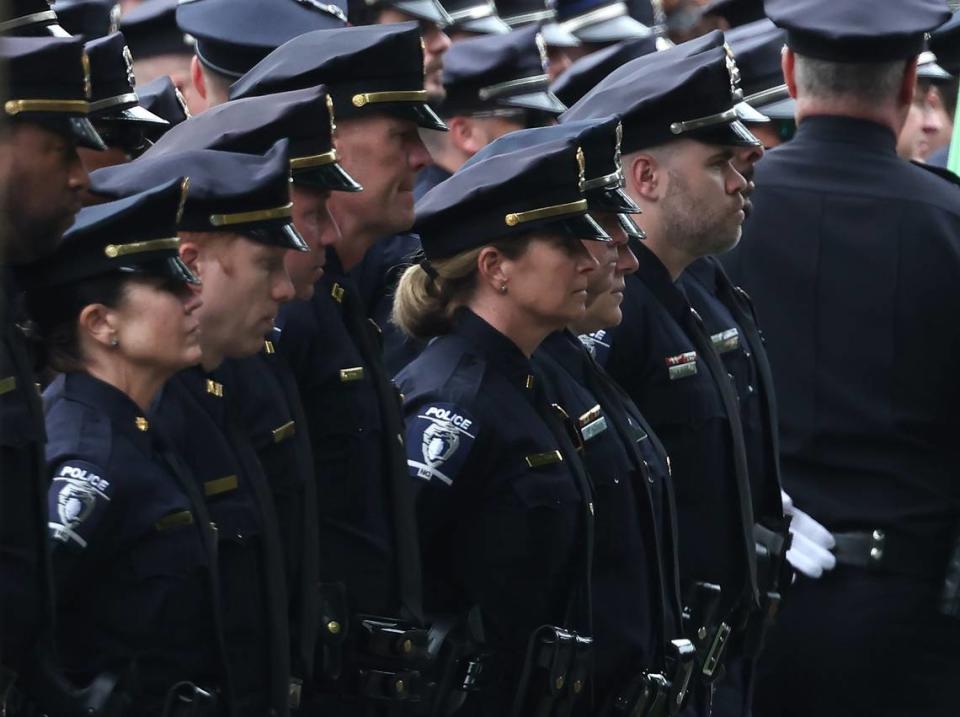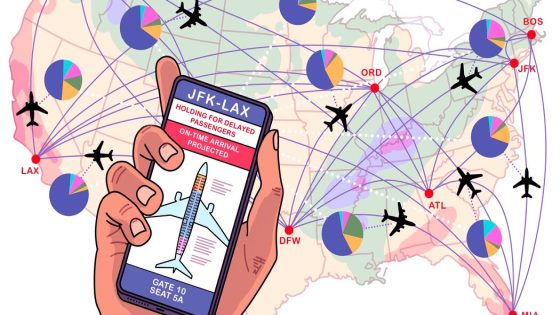Charlotte’s mass shooting followed by the apparent suicide of an officer two months later highlight the need for mental health services to be available to officers, according to police and an expert on policing.
CMPD Officer Joshua Eyer was one of four law enforcement officers killed in an east Charlotte shootout in late April. And last week, another officer, Brent Simpson, apparently died by suicide at a cemetery near Charlotte Douglas International Airport.
“These sort of incidents shine a light on the struggles that law enforcement is up against specific to mental health,” said Thomas Coghlan, an adjunct professor at the John Jay College of Criminal Justice who also provides psychotherapy for first responders. He’s a retired New York Police Department detective.
The big question for police after something traumatizing, he said: “How do we outreach to the most affected officers?”
What does CMPD offer?
The department offers services for its officers to help cope with trauma.
“CMPD’s Office of Wellness offers a wide range of services including in-person mental health and wellness counseling to provide a safe space to talk through trauma and emotional impacts and provide other referrals as needed,” CMPD spokesman Mike Allinger said in an email. “CMPD has a Clinical Care Access Program that provides financial reimbursement to employees for qualified therapy services.”
A grant from the Charlotte-Mecklenburg Police Foundation is paying for that program, according to CMPD’s website. It “reduces financial barriers to mental health care for sworn and non-sworn full-time CMPD employees,” the website says.

Two days after the mass shooting in east Charlotte, CMPD sent out an email to staff listing some other resources, like a toll-free, “round the clock” line to call for clinical help and places to meet with volunteer chaplains or peers.
For Mecklenburg County’s law enforcement, there’s a peer support team that employees can contact if they need to talk to someone, Mecklenburg County Sheriff’s Office spokesperson Bradley Smith said. And there are on-site counseling services, he said.
CMPD sent a team to Dallas, Texas, to talk to some of their officers about how they are coping after a 2016 ambush in which a man killed five police officers and injured nine more, along with two civilians. Asked what CMPD discussed with Dallas police and if their advice was helpful, Allinger declined to comment.
Stigma against therapy is pervasive
There’s already a stigma around mental health and counseling for much of the public, Coghlan said, and then there’s an added layer of distrust from police.
Officers worry about losing chances at promotions, and many see therapists as “anti-police,” he said. It starts when they go in for a psychological screening before they’re hired, he said. A therapist becomes an “adversary” then, he said.
But over the years, he’s heard from officers who — by their own accounts — rolled their eyes at his work before they noticed that he described them and their trauma to a tee, he said.
And once they go in for help, they become better officers and better people, he said.
Observer reporter Gavin Off contributed to this story.
Source Agencies



